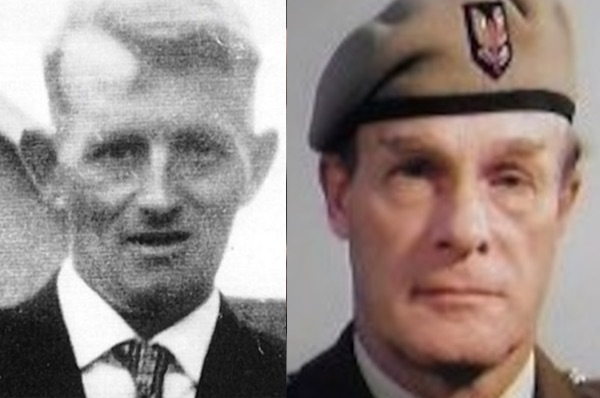
On the day it emerged that the most senior British military figure linked to the killing has died, an Irish court has served to maintain an official cover-up of the murder of Louth man Seamus Ludlow.
The Court of Appeal in Dublin upheld a judgement that refused the Ludlow family the right to an inquiry.
Mr Ludlow (left) was 47 when he was shot dead after leaving a bar in Dundalk in a laneway near his home. His body was found on May 2, 1976.
Days later, eight armed members of the British Army’s ‘elite’ SAS regiment were arrested by Irish Gardaí police in the area, some miles south of the border.
No one has ever been charged in connection with the murder and his family says Irish Garda police failed to pursue an important line of inquiry - that he was an innocent victim of British and loyalist forces who mistook him for a senior member of the IRA.
Ludlow family lawyer Gavin Booth, of Phoenix Law, said that days after the killing, a member of the family was interrogated by the British army in Bessbrook in South Armagh -- the same barracks where the SAS men were posted.
Despite the suspects having been identified, the Garda investigation was suspended after three weeks without explanation and on foot of what one Garda told the family were “orders from Dublin”.
It is understood the incursion linked to the death of Mr Ludlow was directed by the then Major Brian Baty (right), who died earlier this year in England. In 1976, eight soldiers were charged in relation to the County Louth incursion over the border and during their trial, and Baty gave evidence, blaming a ‘map-reading error’.
Baty was also among some of the first members of the SAS regiment to be officially deployed to the north in 1976 and was based in Bessbrook. He was also believed to have been involved in the kidnapping of republican Sean McKenna, who took part in the 1980 hunger strike. Mr McKenna was abducted from a house in County Louth by British soldiers before being taken to Bessbrook for questioning in March 1976.
As he rose up the ranks, he became involved in training British soldiers in covert operations in the North -- the Dirty War. This included the 14th intelligence company, which was closely linked to the SAS and was involved in several shoot-to-kill ambushes against republicans in 1980s.
After a career which took in colonial wars around the globe, he retired. A subsequent recommendation for an MBE was supported by General Frank Kitson, the infamous architect of Britain’s murderous policy of counter-insurgency in Ireland and elsewhere.
Upon retirement he worked for a firm of British mercenaries and continued to extend his shocking catalogue of atrocities as a private contractor. News of his death emerged on Friday 22 May on the ‘Declassified UK’ website.
Discussing the Ludlow judgement, Ruairí Ó Murchú, Sinn Féin TD for Louth, said the family were upset by the decision but not surprised by it, and were examining their legal options.
“They have been campaigning for justice for many years and they intend to continue that by using multiple means to bring a just conclusion,” he said.
![[Irish Republican News]](https://republican-news.org/graphics/title_gifs/rn.gif)
![[Irish Republican News]](https://republican-news.org/graphics/title_gifs/harp.gif)

